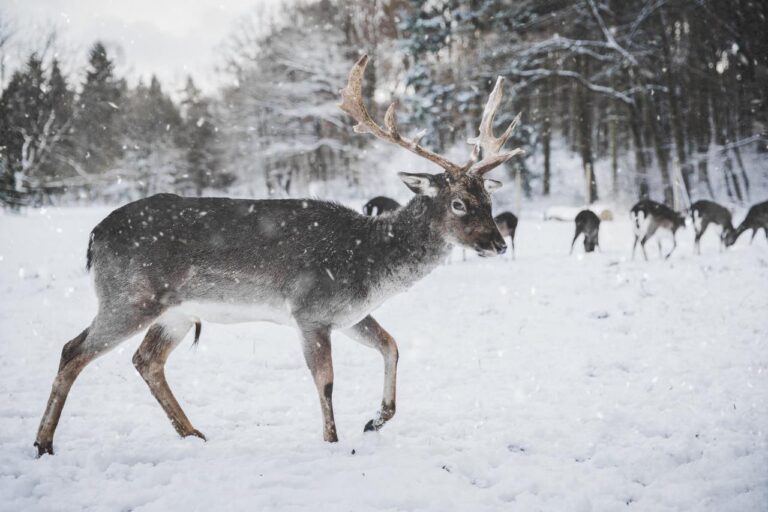Chronic wasting disease (CWD), nicknamed “zombie deer disease,” has been detected in several Canadian provinces, but should we humans be worried?
According to the Canadian Food Inspection Agency (CFIA), CWD is a disease that mainly affects deer, moose, elk, and reindeer.
It was first detected in Canada on an elk farm in Saskatchewan in 1996 but was discovered in Colorado in 1967.
Symptoms of the highly infectious neurological disease found in animals can include excess drooling, lack of coordination, paralysis, unusual behaviour, and weight loss.
The agency’s latest numbers show that the “zombie deer disease” has been found in elk and white-tailed deer in Alberta and Saskatchewan this year.
There were also reports of the disease in Manitoba in 2022.
So, how could this disease affect humans?
Well, according to the CFIA, CWD spreads by direct contact between animals or from a contaminated environment to an animal.
ADVERTISEMENT
“For example, the soil and vegetation can become contaminated by urine, feces, or by the carcass of a dead animal,” reads the CFIA site.
But that doesn’t mean that we two-legged mammals are 100% safe from the “zombie deer disease.”
The CFIA says there has been no known transmission of the disease to humans and that research “in Canada and elsewhere has not provided any direct evidence to suggest that CWD may spread to humans.”
However, the agency does note that scientific uncertainty remains for zoonotic (animal to human) and cross-species transmission.
A study published by the University of Calgary Faculty of Veterinary Medicine last year found that CWD could potentially be transmitted to humans and could even be contagious and transmitted from person to person, similar to Mad Cow Disease.
The researchers discovered this by isolating CWD from infected deer and injecting them into “humanized” mouse models.
Over a period of years, the mice developed CWD and were even found to shed infectious prions in their feces.
But there is no need to panic just yet — the study warns that further research is needed.
In the meantime, as a precaution, the Canadian government recommends not to eat any part of a known CWD-infected animal or untested animals in areas where the disease has been detected.
So, it’s best to be cautious if you have a taste for game meat.
Thankfully, the “zombie deer disease” is reportable under the Health of Animals Act. This means that all animals infected or suspected of being infected by CWD must be reported to a CFIA district veterinarian.
Source: dailyhive
